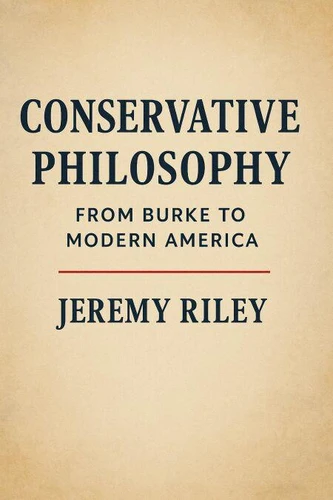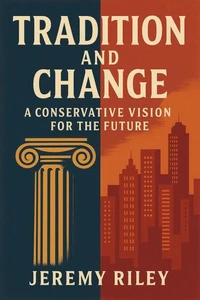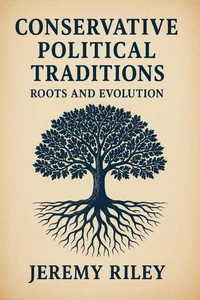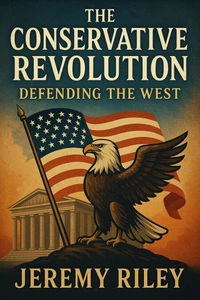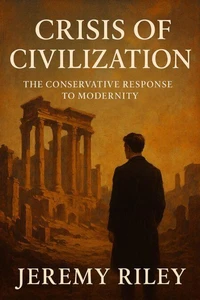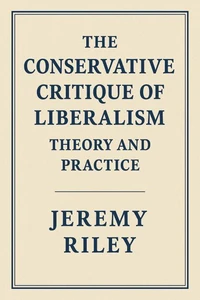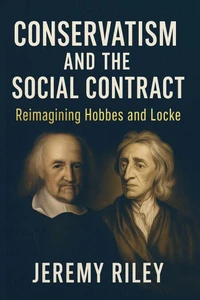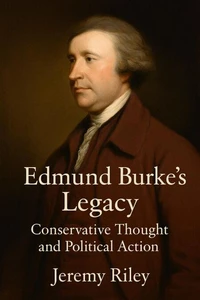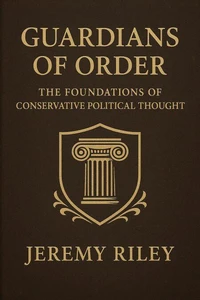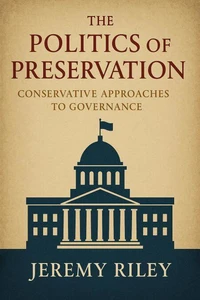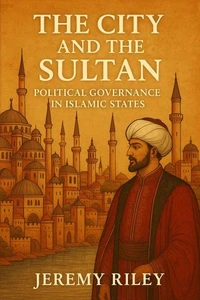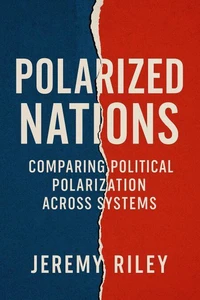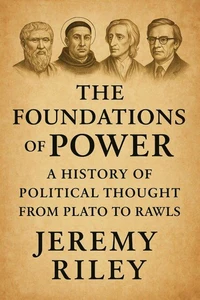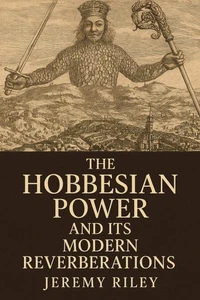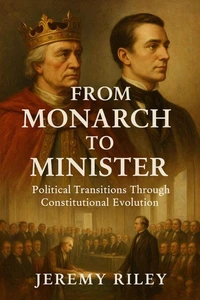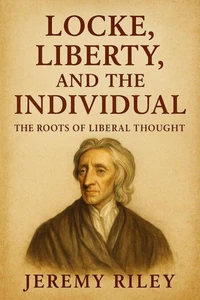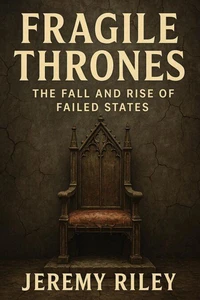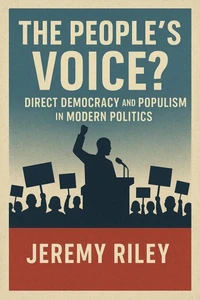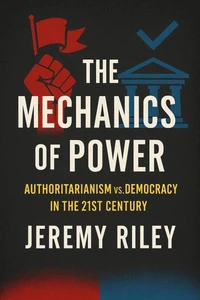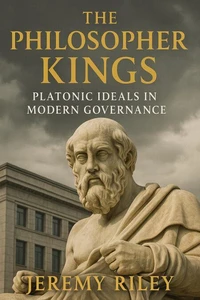Conservative Philosophy: From Burke to Modern America
Par :Formats :
Disponible dans votre compte client Decitre ou Furet du Nord dès validation de votre commande. Le format ePub est :
- Compatible avec une lecture sur My Vivlio (smartphone, tablette, ordinateur)
- Compatible avec une lecture sur liseuses Vivlio
- Pour les liseuses autres que Vivlio, vous devez utiliser le logiciel Adobe Digital Edition. Non compatible avec la lecture sur les liseuses Kindle, Remarkable et Sony
 , qui est-ce ?
, qui est-ce ?Notre partenaire de plateforme de lecture numérique où vous retrouverez l'ensemble de vos ebooks gratuitement
Pour en savoir plus sur nos ebooks, consultez notre aide en ligne ici
- FormatePub
- ISBN8230280682
- EAN9798230280682
- Date de parution21/04/2025
- Protection num.pas de protection
- Infos supplémentairesepub
- ÉditeurIndependently Published
Résumé
"Conservative Philosophy: From Burke to Modern America" traces the intellectual evolution of conservatism from its roots in the 18th century to its contemporary expressions in the United States. Beginning with the seminal works of Edmund Burke, the book explores how conservatism emerged as a reaction to the radical upheavals of the French Revolution, championing tradition, gradual reform, and social order.
The narrative moves through the key figures and movements that shaped conservative thought, including Joseph de Maistre's defense of divine monarchy, the rise of "one-nation" conservatism in Britain under Disraeli, and the intellectual contributions of figures like Friedrich Hayek and Russell Kirk. The book examines the complexities of conservative responses to modernity, including the challenges posed by democracy, secularism, industrialization, and the rise of socialism.
It looks at how conservatives in the 20th century, particularly in the U. S., navigated the changing political landscape, reacting to both the expansion of government power and the rise of global forces. The work culminates in an analysis of contemporary conservative movements in America, with a focus on the shift toward the New Right, the impact of globalism, and the ongoing debates about tradition, individualism, and the role of the state.
Through historical analysis and a deep dive into primary sources, this book provides a comprehensive look at how conservative philosophy has evolved and its enduring relevance in today's political and cultural landscape.
The narrative moves through the key figures and movements that shaped conservative thought, including Joseph de Maistre's defense of divine monarchy, the rise of "one-nation" conservatism in Britain under Disraeli, and the intellectual contributions of figures like Friedrich Hayek and Russell Kirk. The book examines the complexities of conservative responses to modernity, including the challenges posed by democracy, secularism, industrialization, and the rise of socialism.
It looks at how conservatives in the 20th century, particularly in the U. S., navigated the changing political landscape, reacting to both the expansion of government power and the rise of global forces. The work culminates in an analysis of contemporary conservative movements in America, with a focus on the shift toward the New Right, the impact of globalism, and the ongoing debates about tradition, individualism, and the role of the state.
Through historical analysis and a deep dive into primary sources, this book provides a comprehensive look at how conservative philosophy has evolved and its enduring relevance in today's political and cultural landscape.
"Conservative Philosophy: From Burke to Modern America" traces the intellectual evolution of conservatism from its roots in the 18th century to its contemporary expressions in the United States. Beginning with the seminal works of Edmund Burke, the book explores how conservatism emerged as a reaction to the radical upheavals of the French Revolution, championing tradition, gradual reform, and social order.
The narrative moves through the key figures and movements that shaped conservative thought, including Joseph de Maistre's defense of divine monarchy, the rise of "one-nation" conservatism in Britain under Disraeli, and the intellectual contributions of figures like Friedrich Hayek and Russell Kirk. The book examines the complexities of conservative responses to modernity, including the challenges posed by democracy, secularism, industrialization, and the rise of socialism.
It looks at how conservatives in the 20th century, particularly in the U. S., navigated the changing political landscape, reacting to both the expansion of government power and the rise of global forces. The work culminates in an analysis of contemporary conservative movements in America, with a focus on the shift toward the New Right, the impact of globalism, and the ongoing debates about tradition, individualism, and the role of the state.
Through historical analysis and a deep dive into primary sources, this book provides a comprehensive look at how conservative philosophy has evolved and its enduring relevance in today's political and cultural landscape.
The narrative moves through the key figures and movements that shaped conservative thought, including Joseph de Maistre's defense of divine monarchy, the rise of "one-nation" conservatism in Britain under Disraeli, and the intellectual contributions of figures like Friedrich Hayek and Russell Kirk. The book examines the complexities of conservative responses to modernity, including the challenges posed by democracy, secularism, industrialization, and the rise of socialism.
It looks at how conservatives in the 20th century, particularly in the U. S., navigated the changing political landscape, reacting to both the expansion of government power and the rise of global forces. The work culminates in an analysis of contemporary conservative movements in America, with a focus on the shift toward the New Right, the impact of globalism, and the ongoing debates about tradition, individualism, and the role of the state.
Through historical analysis and a deep dive into primary sources, this book provides a comprehensive look at how conservative philosophy has evolved and its enduring relevance in today's political and cultural landscape.

